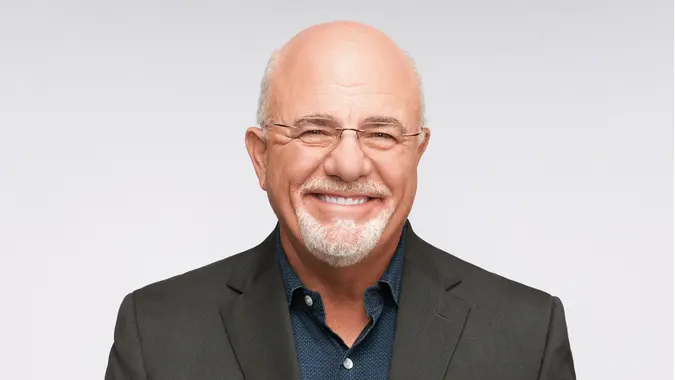Hard Truths on Medicare Dave Ramsey Thinks Every Retiree Should Know

Commitment to Our Readers
GOBankingRates' editorial team is committed to bringing you unbiased reviews and information. We use data-driven methodologies to evaluate financial products and services - our reviews and ratings are not influenced by advertisers. You can read more about our editorial guidelines and our products and services review methodology.

20 Years
Helping You Live Richer

Reviewed
by Experts

Trusted by
Millions of Readers
Most people know that the U.S. healthcare system can be confusing, but Medicare can be particularly hard to navigate. This is especially true for retirees and soon-to-be retirees. From gaps in coverage to having to enroll even if they don’t want to, many elements of the federal healthcare program can be frustrating.
Personal finance guru Dave Ramsey and the Ramsey Solutions team offered some thoughts on the Medicare program that might be useful to hear — even if you’re already enrolled. Here are some of the big ones.
Medicare Basics
It helps to start with the basics. Generally speaking, U.S. workers become eligible for Medicare when they turn 65. Those with a qualifying disability can enroll sooner.
Coverage
Original Medicare enrollment — Parts A and B — covers a host of things, including doctors’ services, inpatient hospital care and preventive services. Coverage is based on state and federal law, but the program generally covers services deemed “medically necessary.”
Original Medicare doesn’t cover everything, however. Common exclusions are long-term care, routine physicals and dentures.
There’s also Medicare Part D, which covers prescription medications and has its own coverage limitations. Those who need additional coverage can purchase Medicare Supplement Insurance (Medigap) or a Medicare Advantage Plan (Part C). This might cover things like vision, dental or hearing services.
Enrollment and Cost
Medicare isn’t mandatory, but most people end up enrolling in it at some point. People with Part A generally don’t have to pay a premium, though it depends. Those with Part B paid an average premium of $175.70 a month in 2024. There’s also a yearly deductible — $1,676 for Part A and $257 for Part B in 2025.
Part D renews automatically, which is convenient, but it is an extra cost. Similarly, Medicap and Part C have additional costs, and you’ll have to re-enroll manually every year for these.
Why It’s Confusing
According to Dave Ramsey, even just the general rules of the program can be “confusing.” But why does he think so?
“Well, it was created by the government, so that might be your first clue,” the Ramsey Solutions post reads. “And second, it’s just a lot to understand.”
This goes for both Original Medicare and Medicare Advantage plans. Advantage plans act similarly to traditional health care plans: Both have limits in terms of their network providers.
Sometimes, an insurance company offering a Medicare Advantage plan won’t cover things like specialists — even if the enrollee was referred to them. This makes it so the enrollee must pay out of pocket for all associated costs of seeing that specialist.
Those who have Medicare Advantage must also pay a separate premium for both it and Medicare Part B. While an Advantage plan can be useful, as per Ramsey Solutions, they’re not the best option for everyone.
The Current Administration and Medicare
People have been concerned about the future of Medicare for years. Now, after the passing of the One Big Beautiful Bill Act (OBBBA), what will Trump’s Medicare cuts look like?
- It’s estimated that the OBBBA could trigger $536 billion in Medicare cuts over a decade. The automatic cuts to Medicare result from an end-of-year sequester under the Statutory Pay-As-You-Go Act (PAYGO).
- Under PAYGO, the enacted bill will cause a $45 billion cut to Medicare in 2026, growing to $76 billion in 2034 and totaling $536 billion over the 2026 through 2034 period.
- It’s also estimated that Trump’s tax cuts could potentially hurt Medicare to the tune of $491 billion in cuts from 2027 to 2034 if Congress does not act to mitigate a 2010 law that forces across-the-board cuts to many federal programs once legislation increases the federal deficit.
Medicare’s future remains to be seen. For now, the best thing current and future retirees can do is keep an eye on their enrollment periods, coverage options and out-of-pocket costs amongst the growing convolution of both public and private insurance companies.
Caitlyn Moorhead contributed to the reporting for this article.
Editor’s note on political coverage: GOBankingRates is nonpartisan and strives to cover all aspects of the economy objectively and present balanced reports on politically focused finance stories. You can find more coverage of this topic on GOBankingRates.com.
 Written by
Written by  Edited by
Edited by 

























